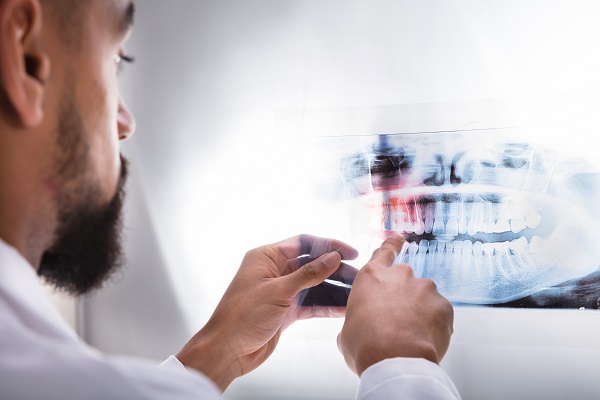General Dentistry: Why Do I Need X-Rays?

X-rays in general dentistry are useful for catching dental conditions that may not be visible to the eye. General dentists typically require patients to get x-rays at least once a year to ensure that the teeth, gums and jawbone are all strong and healthy.
There is a lot of controversy around x-rays in any type of medicine, dentistry included. Because x-rays expose patients to radiation, dentists try to avoid overdoing them. However, there is no proven evidence that dental x-rays are dangerous and general dentists rely on them to maintain a patient's oral and dental health.
Why are x-rays needed in general dentistry?
The following information outlines some of the reasons why x-rays are an important part of annual dental exams.
What are dental x-rays?
X-rays in general dentistry are also known as dental radiographs. When a patient needs an x-ray, the general dentist will use a special camera to capture images of the teeth and gums. The x-rays highlight the bone beneath the teeth, which allows for a closer look at the insides of the mouth.
What x-rays detect
X-rays are used in general dentistry to detect conditions that are not necessarily visible to the eye. A lot of dental problems occur internally and can only be seen through an x-ray machine. Some of the most common conditions that are detected through x-rays include the following:
- Oral cancer: Oral cancer is not always detectable when simply looking in the mouth. Oftentimes there are masses that cannot be seen with the naked eye. They may be beneath the teeth or housed around the jawbone
- Gum disease: Sometimes when gum disease first begins, there are no visible signs. General dentists can use an x-ray to see beneath the gums and examine the bone
- Cavities: Cavities often affect the internal parts of a tooth. Having an x-ray done can highlight cavities that have just begun
- Infections: Infections in the teeth or gums may not always show signs
- Bone loss: An x-ray can be helpful in locating bone loss behind the gums
There are many other dental and oral conditions that x-rays can detect. General dentists rely on x-ray machines to help maintain their patients' oral and dental health.
The importance of x-rays
X-rays in general dentistry are extremely important. There are a lot of oral and dental health problems that cannot be seen by the naked eye. A lot of cavities are detected through x-rays since they are not always visible to the eye. Without x-rays, general dentists may not be able to detect certain conditions.
X-rays are typically done in general dentistry once or twice a year, depending on the patient's health. People that are more prone to cavities or gum disease may be required to undergo x-rays every six months.
The bottom line
Questions and concerns regarding x-rays in general dentistry should be addressed by a dentist. Reach out to our office today to schedule a consultation.
Request an appointment here: https://www.sabinodental.com or call Sabino Dental at (520) 308-6711 for an appointment in our Tucson office.
Check out what others are saying about our services on Yelp: Read our Yelp reviews.
Related Posts
Considering clear braces? Read on to learn more about the process and duration of treatment. Patients often inquire about the length of time they will need to wear clear braces at their first appointment with the dentist. The patient's condition mostly determines the duration. Braces may take longer than expected in certain cases, and individuals…
While getting a tooth extraction may seem daunting, there are many situations where the procedure offers significant health benefits. General dentists often only recommend removing a tooth when keeping it will do more harm than good. Tooth extraction may be necessary to improve overall oral health, alleviate discomfort, and prevent further complications. Here are five…
A traditional dental bridge can replace up to three or four consecutive teeth on the same side of a dental arch. It is one of the most common dental replacements you can get. Knowing how to care for it can help maintain your new smile for a long time. Here are some tips for ensuring…
Dental veneers allow individuals with cosmetic imperfections and abnormalities to improve their teeth, which leads to an enhanced smile. They have become one of the most popular treatment options, as the procedure is relatively straightforward with little to no discomfort. Additionally, veneers are long-lasting and look very natural, thus making it difficult to detect the…
